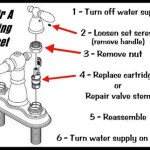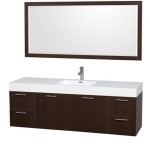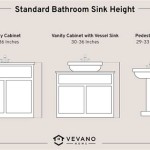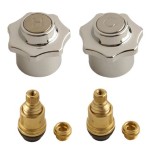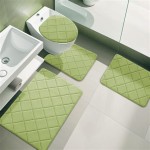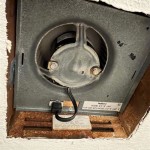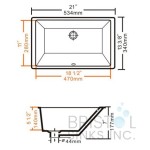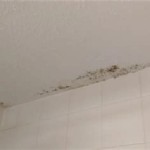Moisture Barrier for Bathroom Walls: Essential Protection for Your Home
Bathrooms are inherently prone to moisture due to the presence of showers, bathtubs, and sinks. The constant exposure to water and steam can lead to a variety of problems if not properly addressed, including mold growth, structural damage, and health issues. A crucial component in preventing these issues is a moisture barrier, which acts as a shield against moisture penetration. This article will explore the importance of moisture barriers in bathroom walls, delve into common types used, and discuss the benefits of incorporating this vital element into your bathroom renovation or construction project.
Understanding the Importance of Moisture Barriers
A moisture barrier serves as a protective layer within bathroom walls, preventing water from seeping through the wall structure, reaching the framing, insulation, and other materials behind the wall surface. Without a moisture barrier, water can penetrate the wall, creating conditions conducive to mold growth, wood rot, and structural deterioration. This not only affects the appearance and longevity of your bathroom but can also pose health risks due to the presence of mold spores, which can trigger allergies and respiratory problems.
Furthermore, a moisture barrier helps to regulate humidity levels within the bathroom, preventing excessive condensation and dampness. This creates a more comfortable and healthier environment, extending the lifespan of your bathroom fixtures and materials.
Types of Moisture Barriers for Bathroom Walls
Several types of moisture barriers are commonly employed in bathroom wall construction, each with its unique characteristics and applications. Some popular options include:
1. Plastic Sheeting
Plastic sheeting, such as polyethylene or polyvinyl chloride (PVC) films, is a widely used and cost-effective moisture barrier. It is typically installed directly behind the wall covering, creating a continuous layer that prevents water penetration. Plastic sheeting is readily available, easy to install, and offers a reliable moisture barrier solution.
2. Waterproof Membranes
Waterproof membranes, often made from materials like rubberized asphalt or synthetic polymers, provide a more robust and durable moisture barrier. They are available in various thicknesses and forms, including sheets, rolls, and liquid applications. Waterproof membranes are particularly suitable for high-moisture areas, such as wet rooms and shower enclosures, offering exceptional resistance to water penetration.
3. Vapor Retarders
Vapor retarders are designed to prevent the passage of water vapor, rather than liquid water. They are typically made from thin, foil-backed materials or plastic films. While they are not as effective in preventing direct water penetration as plastic sheeting or waterproof membranes, they play a crucial role in controlling humidity levels within the bathroom, reducing the risk of condensation and mold growth.
Benefits of Incorporating a Moisture Barrier
Implementing a moisture barrier in your bathroom walls offers numerous benefits, including:
1. Mold Prevention
A moisture barrier effectively prevents water from reaching the wall framing and insulation, eliminating the conditions that promote mold growth. This helps to maintain a healthy indoor environment and protect the structural integrity of your bathroom.
2. Structural Integrity
By preventing water damage, a moisture barrier preserves the integrity of the bathroom walls, preventing warping, rotting, and other structural issues. This ensures the long-term durability and stability of your bathroom.
3. Increased Lifespan of Materials
A well-installed moisture barrier extends the lifespan of your bathroom fixtures, finishes, and materials, reducing the need for premature replacements and costly repairs. This can significantly reduce maintenance costs and extend the overall lifespan of your bathroom.
4. Improved Indoor Air Quality
By controlling moisture levels and preventing mold growth, a moisture barrier contributes to improved indoor air quality, enhancing the overall health and comfort of your home.
In conclusion, a moisture barrier is an essential element in bathroom construction and renovation. It provides crucial protection against moisture damage, ensuring the longevity, safety, and healthfulness of your bathroom. By selecting an appropriate moisture barrier and ensuring proper installation, you can create a comfortable and durable bathroom environment for years to come.
Installing The Vapor Barrier For Bathroom Shower Blog Homeandawaywithlisa

Bathroom Walls Mold Vapor Barriers And Building Codes Where S The Love Greenbuildingadvisor

Vapor Barrier In Bathroom Attics Insulation The Inspector S Journal

How To Wall And Waterproof A Shower D Oh I Y

Cornwall Kitchen Bathroom Flooring Interiors And Garden Miller Countrywide Home Guide
Installing The Vapor Barrier For Bathroom Shower Blog Homeandawaywithlisa
Vapor Barrier For Your House Havelock Wool Insulation

Shower Waterproofing Crash Course Diytileguy

How To Install A Vapor Barrier
Installing The Vapor Barrier For Bathroom Shower Blog Homeandawaywithlisa
